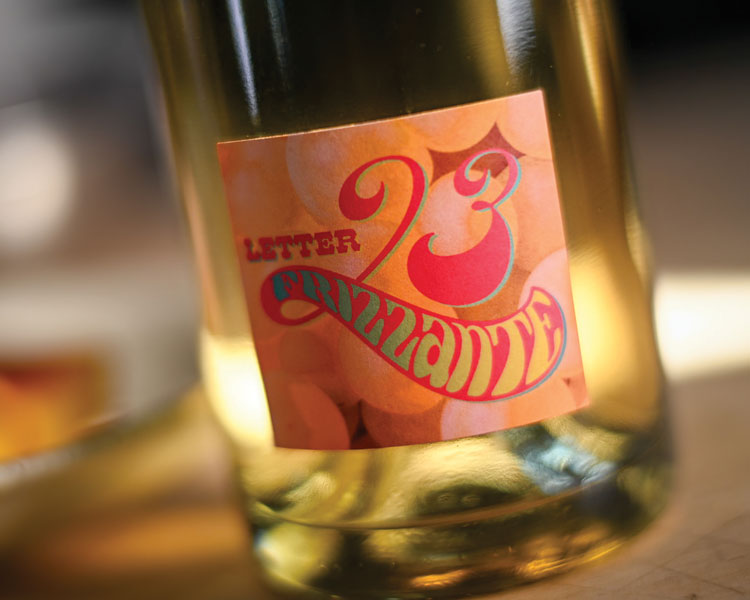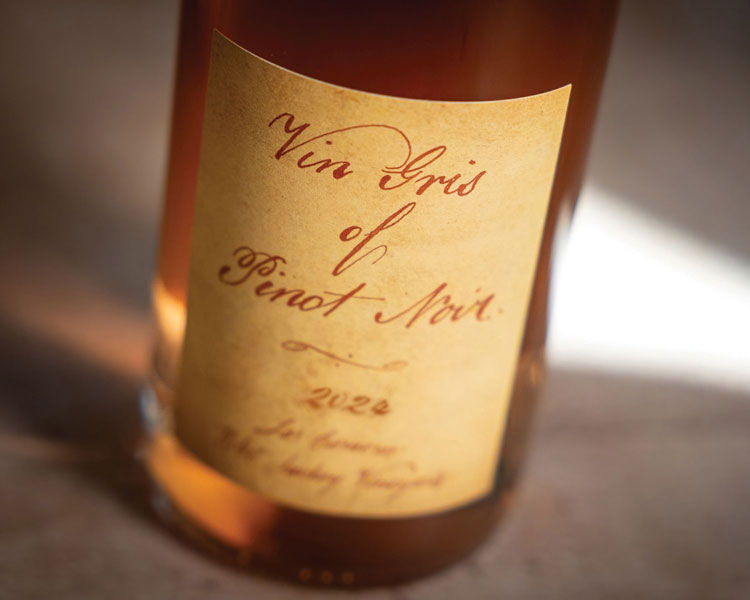Being Franc…
Honestly!
Being young and clueless with wine as your career was sweet, especially in the roaring ’90s. Anything around making, selling, and drinking wine was justified as work – and boy, we worked hard! I traveled the good ole US of A, mostly by plane and sometimes in my VW camper, meeting chefs and sommeliers and working with distributors. Once in a while, I slept on my new friends’ couches, but mostly in dive motels and, occasionally, four-stars.
I found any excuse to pack a bag and head overseas on missions to Burgundy and Bordeaux in search of the secrets of terroir and authenticity. I met with vignerons in their cellars and vineyards by day while “researching” wine in its natural habitat at night, where we conducted “experiments” on ourselves.
One day, my New York distributor asked if I would be interested in joining him in Paris for a convention of winemakers looking for New World distribution. He was on a search for undiscovered family-run Burgundy and Loire producers. I don’t think he finished asking when I blurted out in the affirmative. I flew into Paris in the midst of a transportation strike, and after spending several hours in a taxi, I got out and walked a couple more hours to the hotel. After dragging my suitcase up the stairs and opening the door, I discovered a frat-like atmosphere of half-empty wine and beer bottles with six guys sharing a room, some sleeping on the floor, others on couches, and a couple of lucky ones on their own twin bed. I knew this would be a trip with little sleep.
Half the crew would get in a taxi each day, and the other half would walk to the convention. Those with the least sleep the night before would take the cab and, because of the strike, it would take over an hour to arrive at the convention, enough to get in a good nap while the walkers would get some much-needed exercise and still arrive at the same time. After a couple of days of tasting followed by late nights of drink, uh, I mean, research, we decided to get out of town. Six guys in a van with me as the chauffeur headed to the Loire in search of the elusive Cabernet Franc.
Chinon was the destination. There, we met with established winemakers and not-so-established ones. The wines ranged from green and funky to amazingly delicious, delicate, and elegant. I found it particularly interesting since we had only been growing and making Cab Franc for a few years, and I wanted to learn more about the relationship between the grape, the climate, the region, and the vigneron’s hand. I saw firsthand how their weather was much more challenging than ours. Their challenges were in achieving physiological (flavor) ripeness on a regular basis. The main challenge we faced then (and now) was the heat and finding cooler regions to plant so the fruit could develop flavor without becoming overripe. Our choice to plant Franc in the Carneros was affirmed.
While tasting in the cave of an elderly and proud vigneron, my naive curiosity got the best of me. I wanted to know the etymology of “Franc,” – with the simple ask, “Why is it called Cabernet Franc?” Now, I knew Pinot derived from the pinecone shape of the grape cluster, and I was expecting to hear something similar. Instead, I was met with a glare that bordered on rage. The old man, glass in hand, paused for a moment and, as his broken English left his mouth, spittle flew as each word was delivered in a progressively louder voice, “EET ISS FRAAANC!” he screamed. I stood there a little befuddled and took a swig of his delicious wine. Sensing the Americans in front of him were a little dense, he added, “Eet iss TRUE, eet iss honest!” it was then I knew we had found the magic nugget of wisdom. The best Cabernet Franc is an honest wine. Grown well in the right location, nurtured but not manipulated, and simply crafted to be an elegant, balanced wine. It is Franc!
Rob Sinskey




